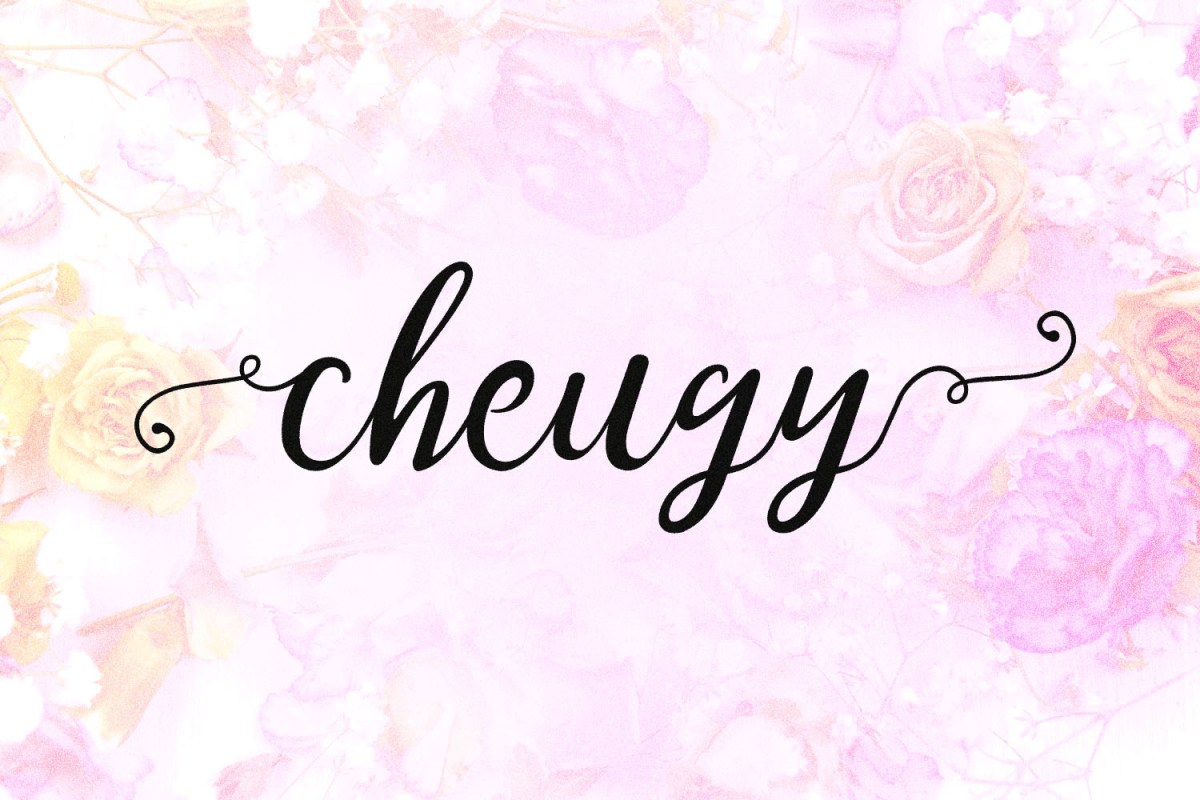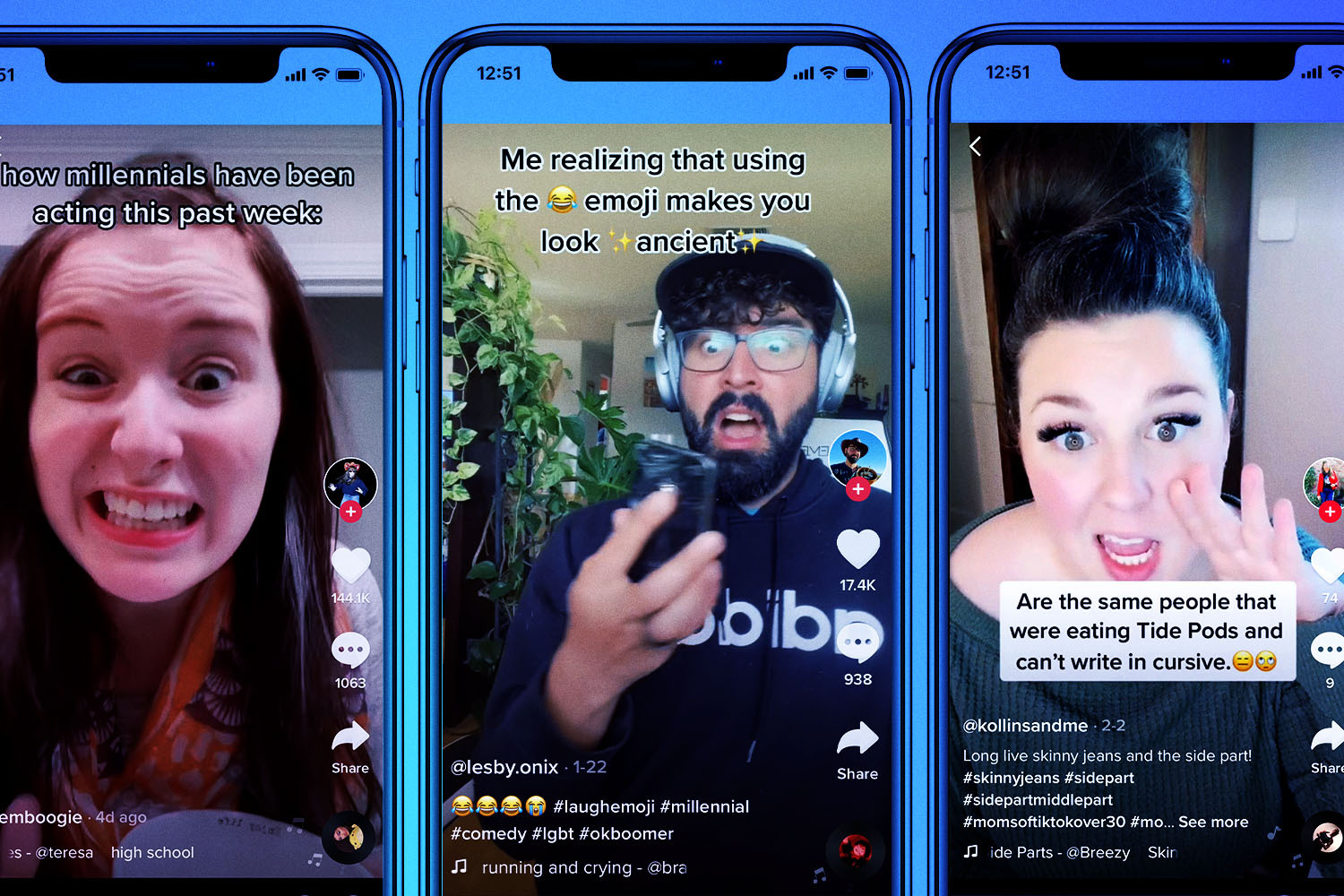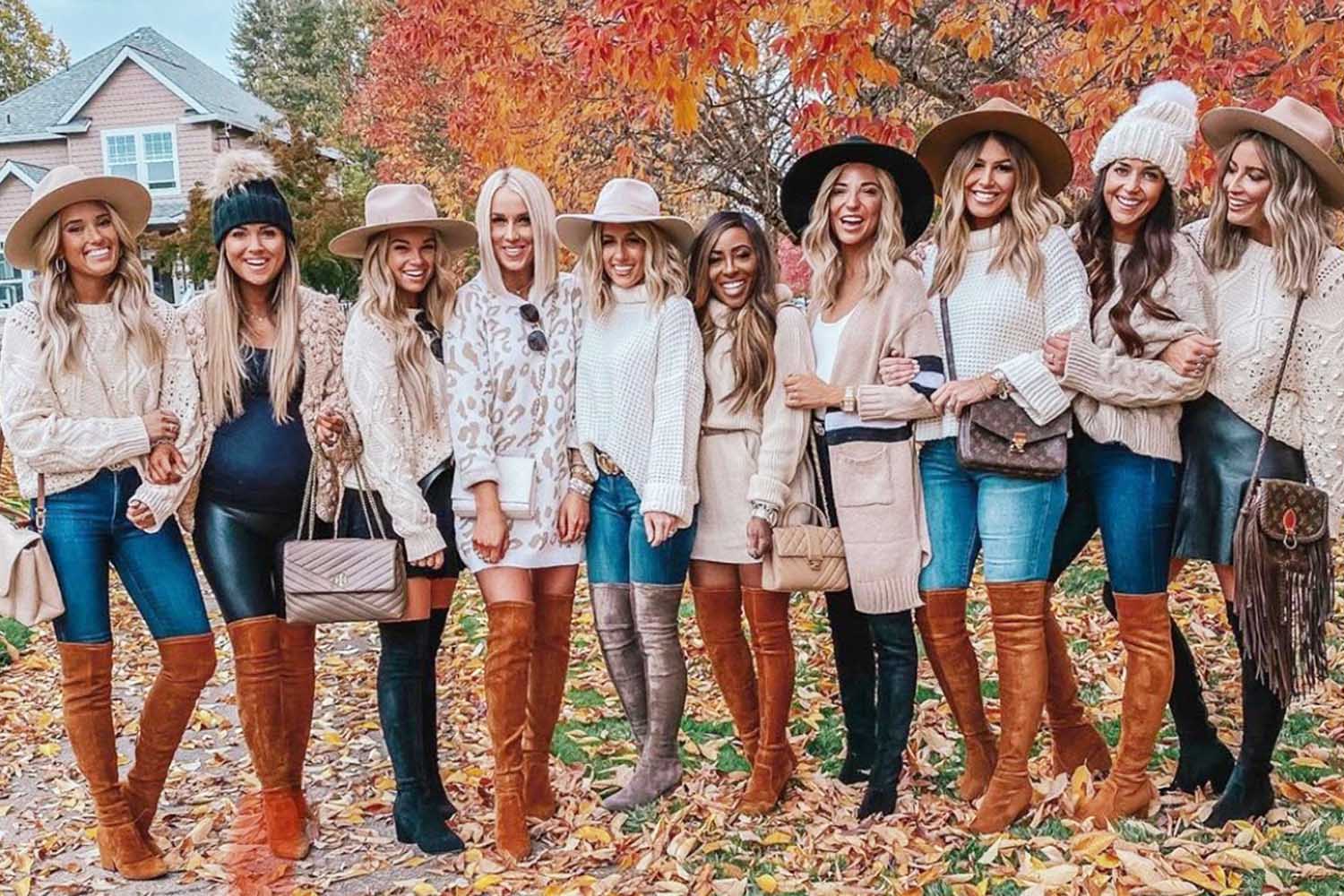By now you’ve probably heard that yet another word has been added to our large, confusing, ever-changing internet lexicon. About two weeks ago, The New York Times reported on a new piece of Gen-Z slang allegedly gaining popularity on TikTok: “cheugy.” After it published, the Times‘ piece immediately put the internet into a tailspin over the new word, where its usage and meaning have been the latest topics of debate in the the dumb, endless internet war between Gen-Z and Millennials.
Now Millennials are embracing their “cheuginess” as to not allow the youths to use the word against them. (As we know, Gen-Z has a history of lampooning older generations, particularly Millennials, for their cringe-worthy behavior.) Only thing is, Gen-Z was not — and still really isn’t! — widely using the word cheugy, despite it being attributed to them.
But before we get into what one TikTok commenter called “a cheugy paradox,” we must, regrettably, get into what the hell this word means. Per the Times‘ definition, the term is used to describe someone trying too hard or who’s out of touch with the current trends — but it’s not quite synonymous with the word “basic.” There’s also a lot of overlap with another internet aesthetic we’ve covered: Christian Girl Autumn. Think “Live, Laugh, Love” signs written in a farmhouse calligraphy font, Rae Dunn pottery and adults who are a little too obsessed with Disney, along with some of your more classic basic white-girl signifiers like Starbucks, Ugg boots and getting caught up in multi-level marketing (or MLM) schemes.
The problem, though, is now everyone is throwing in their two cents on what they deem to be “cheugy,” making it slightly difficult to explain what the word means. Almost everything, depending on whom you ask, can be referred to as cheugy. As many have pointed out, the word cheugy is cheugy.
The word has been around on the internet since at least 2018 according to the official source for all slang and internet terminology: Urban Dictionary. The creator of cheugy is a 23-year-old software developer who told The New York Times it goes all the way back to 2013, when she used it in high school to describe people “who were slightly off trend.” The word then spread among classmates, camp friends and even into college sororities, but as the Times notes, it “was in no way mainstream” until 24-year-old Hallie Cain posted a TikTok on March 30 explaining the term that “amassed hundreds of thousands of views” and inspired an explainer from In The Know.
I would argue the word really went mainstream once the paper of record chimed in, catapulting it into the mainstream. Since the Times’ explainer published in late April, we’ve seen Vice explain what “The Three Tiers of Cheuginess” are and an entire Today Show segment break down what the word means. (And, yes, now I’m chiming in.) The current narrative around cheugy seems to be the notion that Gen-Z is using the word to make fun of Millennials for their out-of-touchness, basic style and gauche behavior. But to me, a Gen-Zer who spends almost every breathing moment I have scrolling through TikTok, it appears Millennials and zillennials are by and large the ones actually spreading the gospel of this supposed youth-speak, posting video after video of themselves declaring what is and isn’t “cheugy.”
Just take a scroll through the hashtag #cheugy on TikTok, which now encompasses more than 10.6 million views. Most of the top viewed and liked videos feature non-teens discussing the generational “drama” over the new word. In one video with almost 400,000 likes, millennial TikToker @rod said the phrase was coined by Gen-Z and geared towards Millennials. The Guardian Australia‘s TikTok account, which is run by a zillennial, expressed a similar sentiment, explaining that people were using the word to make fun of millennial traits. Other videos making their way around the video-sharing app feature, again, mostly non-teens expressing what they consider to be cheugy, and users proudly proclaiming their newfound cheuginess before the teens have even had a chance to use the word to insult them.
In essence, they’re attempting to reclaim what they perceive as a slur before it even had time to become one. One Millennial TikToker even made the claim that jean jackets are apparently cheugy. “I’m gonna still be wearing mine. I hope if you like yours you’ll be wearing it too,” she encouraged her fellow Millennials.
Self-proclaimed Gen-Zers in the comment sections of these TikToks, however, are a bit confused, and not entirely sold on their perceived involvement with the trending word.
“Do people actually use that word the only time I hear [it] is when people are complaining about genZ,” asked one user. “No one in Gen z has ever used this word,” added another. “Literally never heard of this word until today, who actually is using this? Most of Gen Z would have been like 10 when this word was around.” “I keep seeing Millennials talk about cheug and that gen z is calling them that but I’ve legit NEVER heard gen z say that b4???” “Literally no one in Gen Z uses this. Millennials need to stop believing everything they read on Buzzfeed.”
I could go on, but you get the gist.
Now it’s not as if Gen-Zers aren’t making fun of Millennials — they definitely are, they’re just not by and large using this word to do it. Maybe cheugy would’ve caught on with the younger generation if Millennials didn’t swiftly hop on and ruin it, considering cheugy is, in fact, a pretty convenient term used to describe a certain subset of millennial white women who the internet has taken a fascination with.
As Vox’s Rebecca Jennings recently wrote, “cheugy” is just an extension of the same group of pumpkin spiced latte-sipping basic bitches, VSCO girls and Christian Girls of Autumn the internet has tried to define for almost a decade. Now they’re in their 30s and sliding into your DMs every so often to sell you Monat hair products and essential oils. It’s why if you ever take a stroll through a TikTok comment section, you’ll often find users calling each other “bestie” or “girlboss” — they’re mocking MLM culture, which lives and dies by pseudo-inspirational jargon meant to engender a sense of camaraderie. As Jennings writes, “MLMs like LulaRoe, LipSense, and Young Living encourage members to exploit the relationships they already have and create a false sense of intimacy with people they barely know — i.e., calling a distant acquaintance a ‘bestie’ before sending them a sales pitch.”
Like everyone else on the internet, Gen-Z is making fun of this particular type of person. Did they coin a term specifically to bash Millennials and everything they love, though? No.
In a desperate attempt to reclaim a word most Gen-Zers were not using nor even knew existed, Millennials ended up spreading the word around, calling each other “cheugs” and getting offended by a term they themselves propagated. As one TikTok commenter put it, it’s “millennial on millennial violence.” Above all, though, this entire cheugy discourse, as some Twitter users have even noted, feels forced. Maybe it’s just a product of being stuck inside for an entire year and letting futile internet discourse rot our brains. Or maybe it’s just the latest embarrassing attempt by the olds to try and remain hip with the kids by appropriating their lingo, in which case they should heed some advice from one Regina George: it’s not going to happen.
This article was featured in the InsideHook newsletter. Sign up now.























